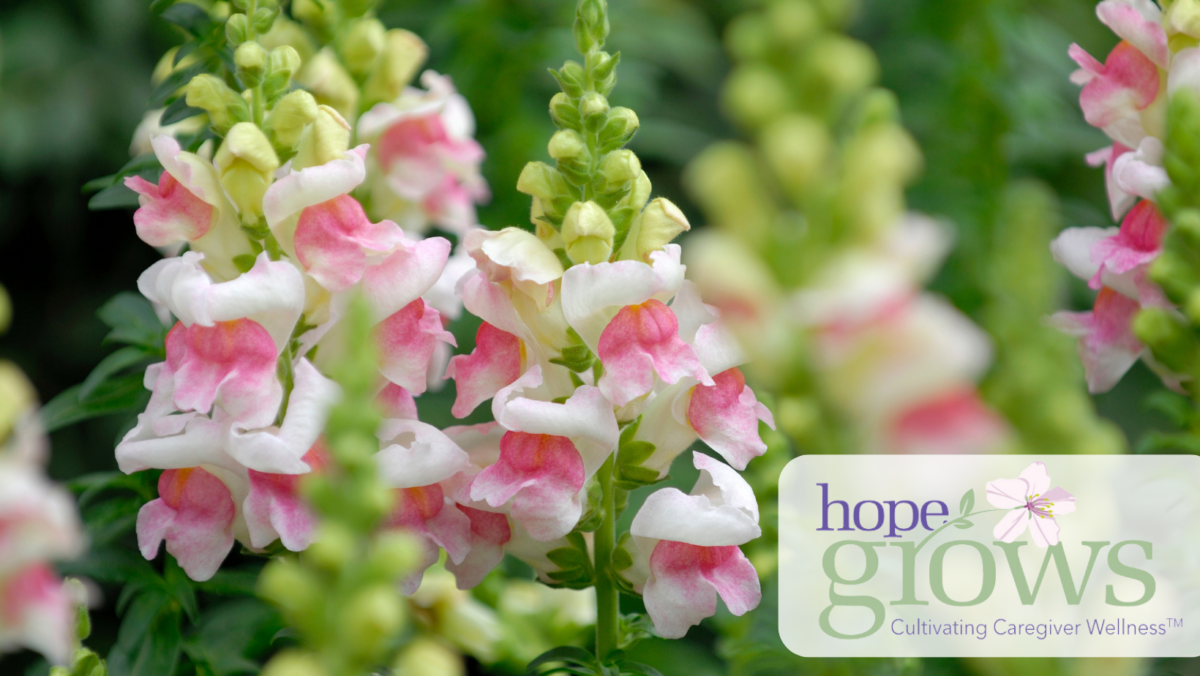Energy
I spent a bit of mindful energy this morning looking around at the beauty of the gardens here at the Iris Respite House & Healing Gardens. Some rain storms have left us with fuel for growth; the flowers everywhere are bursting with fullness and color. It is as if the flowers got a shot of caffeine overnight; there is a liveliness, a get up and go, an energy.
Energy is an interesting word. We can have all sorts of it and moments of none, so it seems. The word itself projects an oomph to it and when you pay attention to its use, it is everywhere. Statements abound: youthful energy, stagnant energy, quantitative energy, comparative energy, and departments of energy, to name a few. I hear people say, “I have no energy,” “I need an energy drink,” “I have positive energy,” or “He/She has negative energy.” Famous people and scholars tell us that energy of the mind is the essence of life, there is energy in motion, energy flows where attention goes, and energy is contagious: either you affect people or you infect people.
Warren Buffett was quoted saying that “Without passion, you don’t have energy. Without energy, you have nothing.” I suppose that is true, because it takes passion on some days to get out of bed, to brush your teeth, and to eat breakfast. Does passion need to exist to move forward with activities of daily living? I don’t think so – some of those are habitual things we do. However, if we have lost passion in life or are burned out, I know firsthand, it is hard to keep moving forward.
So many questions surface. Most of us have to engage in some type of caffeinated drink to fuel ourselves in the morning. But what about those that exert too much energy all the time? Can it deplete the desire to stay motivated? Can passion move quickly away and cause someone to become stagnant. Can pain and suffering discourage a person to the point of NO energy?
If you look at the opposite meaning of the word, that meaning depends on how you are using it. The English language is complicated, and if you are referring to the energy as a generated power, simplified, the opposite is a lack of. From a person’s spirit and vigor, the opposite could be apathy, depression, and/or spiritual distress. I think of caregivers when I think of the person’s spirit in relation to energy. Caregivers put forth so much energy all of the time in providing care to their loved one, but yet, they keep moving, they keep pushing through, sometimes to the point of complete burnout.
So, what is the antidote? Just like a power grid, a car, or the flowers in the garden, restoration is needed. Dealing with life overload and the stress of long work hours without breaks can indeed lead to burnout and a decline in spiritual, mental, and physical health. Finding ways to manage stress and maintain sanity is crucial. Energy, caregiving, and healing are interconnected concepts that revolve around the well-being of individuals. In the context of well-being, energy can refer to both physical vitality and the more abstract notion of life force or spiritual energy.
The notion of Spiritual Energy is what I think Warren Buffett is referring to in his quote above. Passion, purpose, and meaning are often described as what is needed to have spiritual energy. It is the “chi,” “prana,” or “life force” that keeps the flow of energy through and around the body, impacting overall wellness.
If your life force energy is depleted, or you are just exhausted and need to restore, several strategies can help you escape from the relentless cycle and regain balance. Healing encompasses the processes through which a person recovers from illness, injury, or emotional distress. It can be approached from various angles:
Medical Healing: Involves conventional medical treatments and therapies to address physical health issues.
Emotional Healing: Focuses on recovering from emotional trauma, stress, and mental health challenges.
Spiritual Healing: Utilizes practices such as meditation, prayer, energy work (like Reiki), and other holistic methods to restore a sense of balance and well-being.
Because energy, caregiving, and healing are interconnected concepts, implementing a balanced approach is important. Regularly evaluate your work-life balance and adjust your strategies as needed to maintain your well-being. Remember, it’s crucial to prioritize self-care and seek help when needed to sustain long-term health and happiness. Join us through our Simple Suggestions and sign up for our Think Caregiver emails today! Email intake@hopegrows.org to get on the list.
Written by Lisa Story, MSCP, LPC, CT
Hope Grows Founder & Clinical Director

